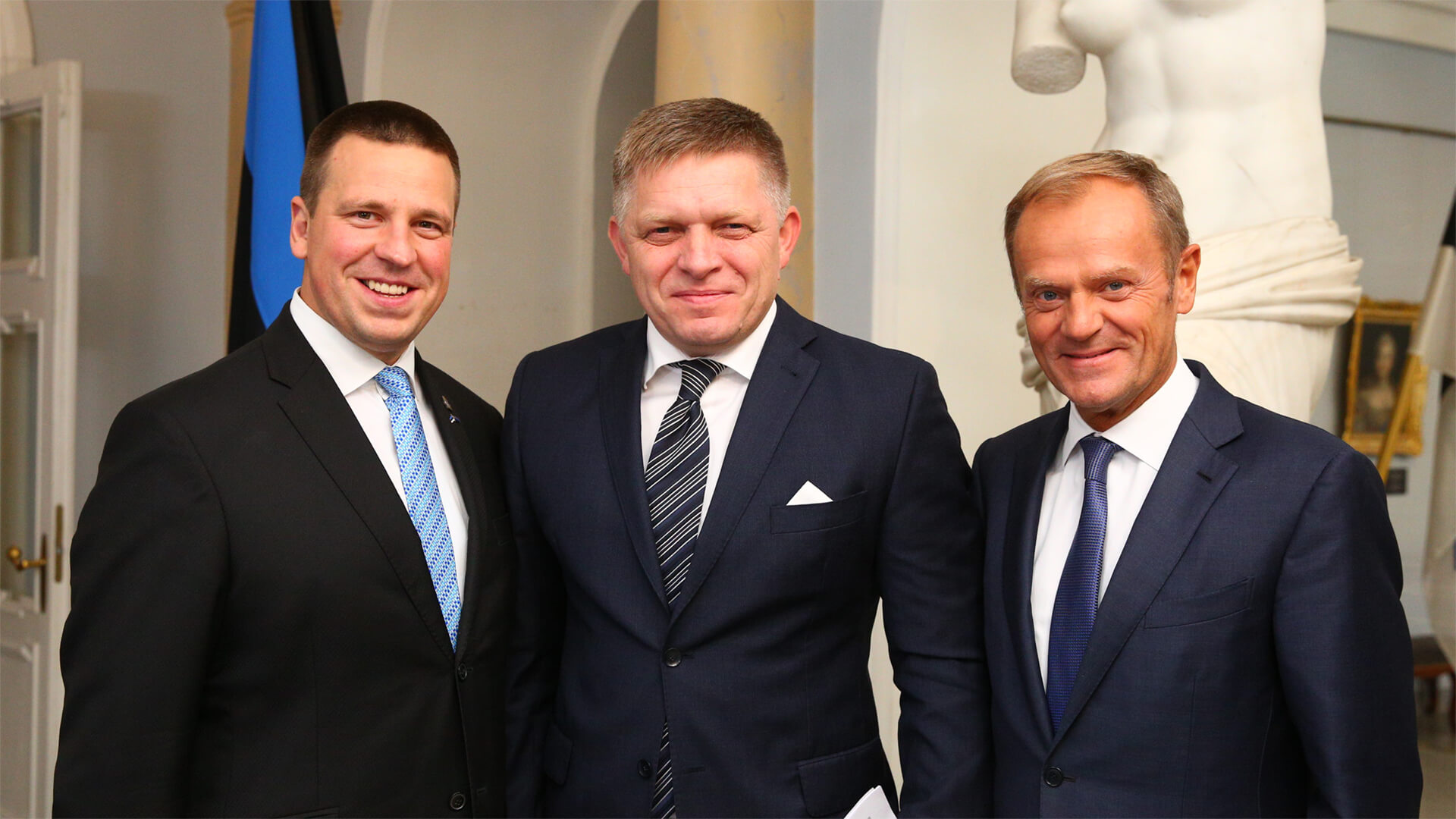WEBINAR – Peter Zeihan’s Risk List: What Keeps a Geopolitical Strategist Up at Night
Please join Peter Zeihan for a webinar on June 5th at 12:00 PM EST on a topic that is near and dear to the hearts of the Zeihan on Geopolitics team: geopolitical risk. This webinar will feature Peter’s reasonable-fear list, focused on issues that in his opinion have the most potential to impact market outcomes.
On Wednesday May 15, there was an assassination attempt on Slovakia’s Prime Minister, Robert Fico. At the time of recording, the PM was still in critical condition and there’s no clear political group or foreign entity claiming responsibility.
Slovakia has a unique political landscape and Robert Fico began his career in the midst of it. He entered the political sphere during the Cold War era and has seen the transition to present day as Prime Minister.
PM Fico has had a front row seat to as the rural-urban divide has unfolded and even taken advantage of it throughout his career. When the Soviet Union fell, those in rural communities felt they had lost everything, and they resented the urban areas for their Western drift. The urban areas feel that the promise of membership in the Western world will solve all their problems, and resent the rural regions wanting them to drag them back. There’s also been plenty of economic challenges to add fuel to the fire.
Take all of those factors of Slovakia’s complex internal dynamics and you get a volatile political climate that led to this assassination attempt on the Prime Minister.
Here at Zeihan On Geopolitics we select a single charity to sponsor. We have two criteria:
First, we look across the world and use our skill sets to identify where the needs are most acute. Second, we look for an institution with preexisting networks for both materials gathering and aid distribution. That way we know every cent of our donation is not simply going directly to where help is needed most, but our donations serve as a force multiplier for a system already in existence. Then we give what we can.
Today, our chosen charity is a group called Medshare, which provides emergency medical services to communities in need, with a very heavy emphasis on locations facing acute crises. Medshare operates right in the thick of it. Until future notice, every cent we earn from every book we sell in every format through every retailer is going to Medshare’s Ukraine fund.
And then there’s you.
Our newsletters and videologues are not only free, they will always be free. We also will never share your contact information with anyone. All we ask is that if you find one of our releases in any way useful, that you make a donation to Medshare. Over one third of Ukraine’s pre-war population has either been forced from their homes, kidnapped and shipped to Russia, or is trying to survive in occupied lands. This is our way to help who we can. Please, join us.
TranscripT
Hey, everyone. Peter Zeihan here coming to you from the new airport in Berlin. It is sleek. It is efficient. It is secure. It’s amazing. for those of you who have been to the US airport in Charlotte, you know what I’m talking about here. It’s the opposite of that. Anyway, the news today is that Robert Fico, the prime minister of Slovakia, has been the target of an assassination attempt.
It’s, too early to know if he’s going to live. Although he did make it through the night. at the moment, while it does look like the attack was politically motivated, it doesn’t seem to involve a formal political grouping or a foreign country. So at least we have that going for us. But I honestly can’t remember the last time that a Syrian political leader was the target of an assassination attempt in Europe.
well, what we’re seeing here is a combination of personality politics and economic politics and geopolitics all mashed together to make an increasingly volatile situation. there’s no perfect comparison to any other country. Slovakia has its own thing. So let me just kind of give you the rundown of how we got to where we are. Robert Fico started out as somebody who was desperate to get into the Communist hierarchy during the Cold War, and he had just finished training when the Cold War ended, and all of a sudden, he found himself adrift in a new system.
And unlike a lot of the other countries in Central Europe who immediately surged towards the European Union and NATO, Slovakia took a few years to figure out what it wanted to do. The issue is that Slovakia, used to be part of Czechoslovakia, and when the Czechs and the Slovaks had their political divorce back in 1993, Slovakia kind of the rump state, the poorer part, was adrift.
And a lot of people in rural Slovakia specifically were really upset with what had gone down because at the time they were part of the country. charged word was a little bit socialist, but it’s like Venezuelan socialist where there’s a lot of crony activity and a lot of theft. And so you had people in a relatively economically depressed area, who were dependent upon the state for their livelihood.
Well, when the Czech Republic separated, they took most of the industrialized part of the country with them, leaving behind Bratislava, the largest city and then a large swath of people who were more rural. So it is generally considered to be the most rural of the countries in Europe, with about half the population still living in very small towns or on the farms.
And so you get this urban rural split where the urbanites were desperate to follow the Czechs and the rest of Central Europe into NATO and EU structures, to join modern Europe, where you had half the population living in a relatively depressed area, wanting to go the other direction and yearning for strongman rule and a state handout. So basically
Euro socialism on one hand, Venezuelan socialism on the other, into this, Robert Fico comes and as you have seen in the United States with the trumpists rural folks who are angry, regardless of why they’re angry, cannot be a potent political force.
And unlike the United States, where the populist, conservative rural group is less than a fifth of the population, here they’re closer to half. So the sort of vitriol that we’ve seen in the United States in the last five years that has existed in Slovakian politics for the past 35 years, and Fico has road to that over and over and over again.
That doesn’t mean that the Europeans in Slovakia have been great, because the bad blood started so long ago and because the economic split is so deep, we’ve seen an ossification of really, really rough politics on both sides of the Slovak political aisle. It’s kind of like if you let morally vacuous gun nuts like Lauren Boebert be media personalities on both sides, and that has eventually generated a culture of political violence in the country that has now resulted in a shooting of a prime minister.
Probably, we’re assuming at the moment that there’s not a foreign intervention in this. If that changes, I will be recording a very different video.




